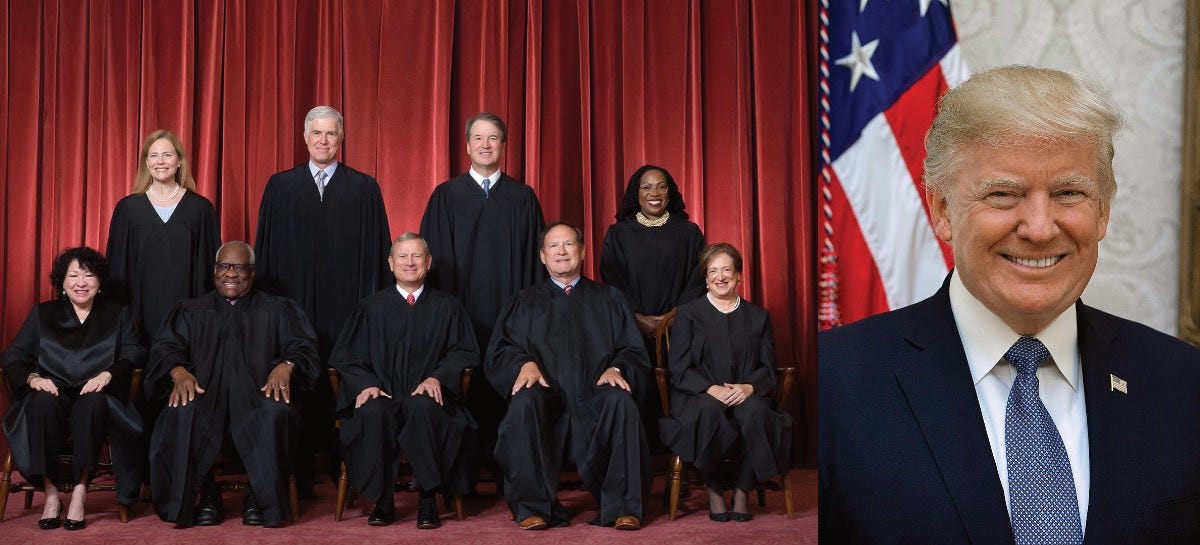Supreme Court rules that former President Trump is immune from prosecution for some of his alleged conduct while in office
Editor’s note: This article has been updated from its original version to include information about the justice’s vote. A link to the opinion is also included with the article for reference.
The Supreme Court ruled on July 1 in a 6-3 decision that former President Donald Trump is immune from prosecution for some of his alleged conduct while in office. The decision is expected to bring more delays to the federal election interference case against him.
Chief Justice John Roberts wrote the majority opinion in one of the remaining cases heard by the court this term. Roberts was joined by the court’s five other conservative justices, while the three liberal justices – Justice Elena Kagan, Justices Sonia Sotomayor, and Ketanji Brown Jackson – dissented.
Roberts explained in his 43-page ruling that while the president “is not above the law,” presidents have absolute immunity for their official acts when those acts relate to the core powers granted to them by the Constitution – for example, the power to issue pardons, veto legislation, recognize ambassadors, and make appointments. But Sotomayor, in a dissent joined by Kagan and Jackson, countered that if a future president “misuses official power for personal gain, the criminal law that the rest of us must abide will not provide a backstop.”
The court ruling that some conduct closely tied to the president's core duties is off-limits to prosecutors, setting up the question of what constitutes official conduct. The case will now return to a lower court for further deliberation, making a trial before the upcoming November election unlikely.
Former President Trump's legal team sees this as a big win, and President Joe Biden's campaign argues that the ruling does not change the facts.
Trump praised the Supreme Court's decision, which extends the delay in the Washington criminal case against him on charges he plotted to overturn his 2020 presidential election loss. He said that it should end all legal cases he faces. There might still be a hearing before the November election that could reveal evidence for a potential trial.
Essentially, the ruling is expected to end prospects of the former president being tried before the November election. The court's decision in a second major Trump case this term and its rejection of efforts to bar him from the ballot because of his actions following the 2020 election underscores the direct and possibly uncomfortable role the justices are playing in the November election.
The court found Trump “absolutely immune” from prosecution for alleged conduct involving discussions with the Justice Department and “at least presumptively immune” from allegations that he tried to pressure Vice President Mike Pence to reject certification of Democrat Joe Biden's electoral vote win on Jan. 6, 2021. The court directed a fact-finding analysis on one of the more striking allegations in the indictment – that Trump participated in a scheme to enlist fake electors in battleground states won by Biden who would falsely assert that Trump had won.
More (Court decision)




